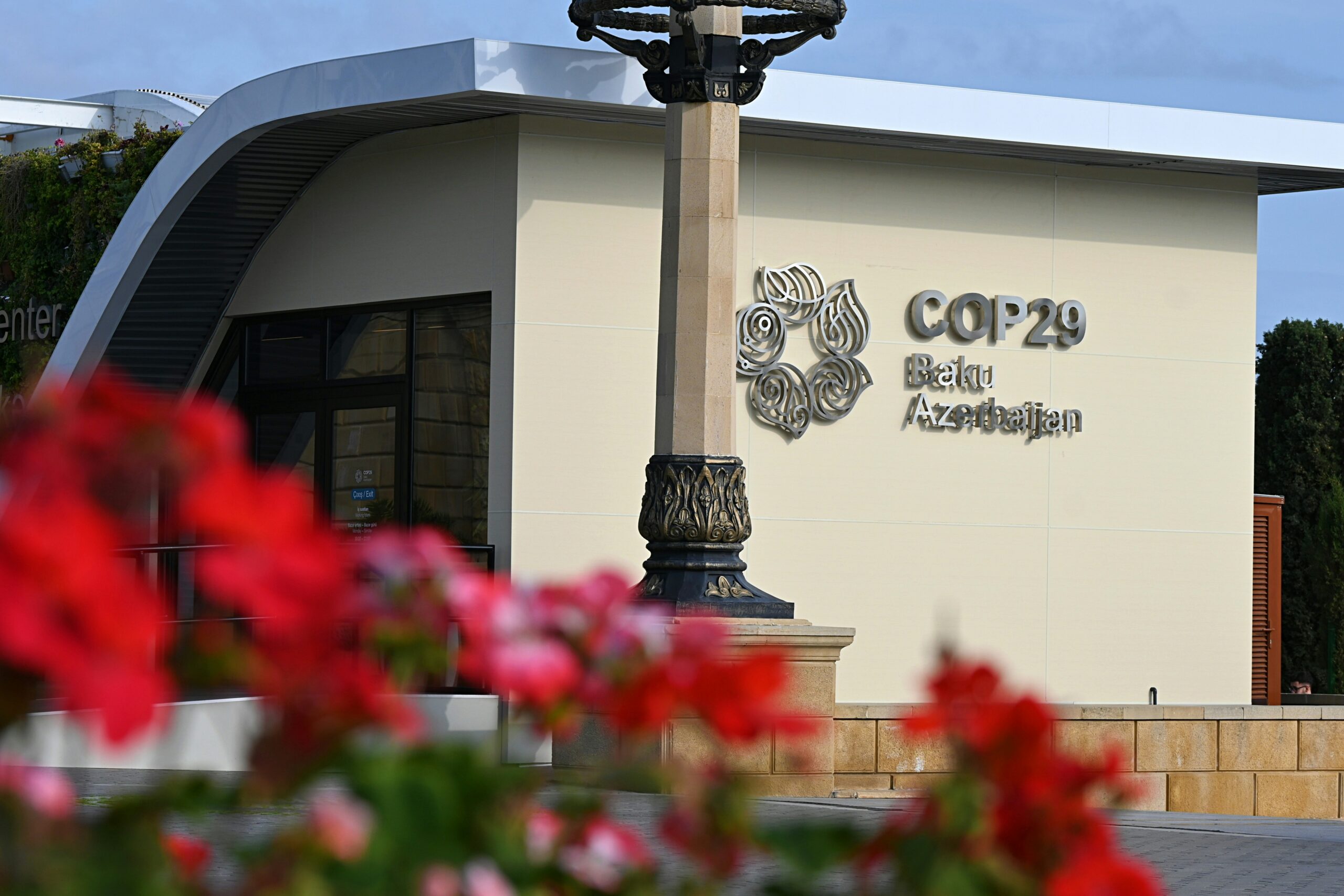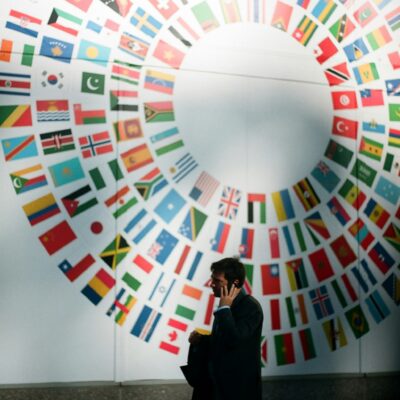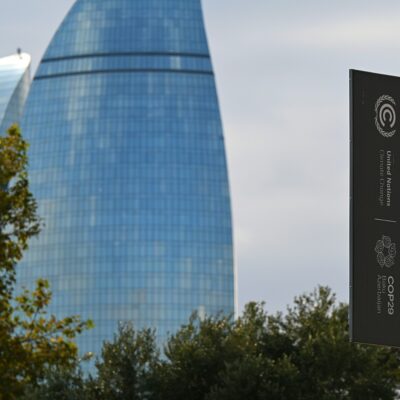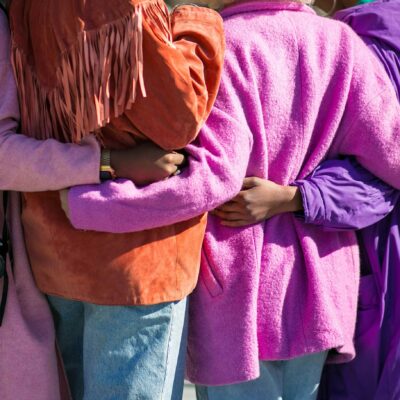 Photo: Dario Daniel Silva/Unsplash
Photo: Dario Daniel Silva/Unsplash
This is blog post written by Gert Van Hecken, Vijay Kolinjivadi, Marcela Vecchione Gonçalves, Richard Toppo and Anwesha Dutta. It was originally published on the European Association of Development Research and Training Institutes‘ (EADI) blog. The blog examines how COP29 continues to prioritize corporate-driven approaches over transformative climate action, calling instead for solutions centred on equity and systemic change. Find the original here.
As delegates gather in Baku, Azerbaijan, for the 29th Conference of the UN Framework Convention on Climate Change (COP29), we are once again reminded of how compromised these summits have become. Baku, a capital built on oil wealth, is yet another highly securitized backdrop for a conference hijacked by fossil fuel interests. From the UAE’s Sultan Ahmed Al Jaber, CEO of Abu Dhabi’s National Oil Company, presiding over COP28 in 2023 to Azerbaijan’s fossil-fuel-driven regime hosting this year, the COPs have become increasingly directed by the very industries they claim to hold accountable. In a glaring example of this contradiction, COP29’s chief executive Elnur Soltanov – Azerbaijan’s deputy energy minister and a board member of the state oil company Socar – was filmed discussing oil and gas investment opportunities with a fictitious energy investor. This stunt, orchestrated by Global Witness, underscores how blatantly these summits serve fossil fuel agendas, even as a new report reveals that there are no signs of promised fossil fuel transitions and emissions are set to reach a record high in 2024.
Dubbed the “Finance COP,” this year’s conference focuses on ambitious climate finance pledges with hopes for a trillion-dollar deal. As impressive as this amount may sound, it pales in comparison to global military spending, the US alone allocating an annual budget of a similar magnitude. But let’s be clear: even if such financing materializes it would still fall short of advancing genuine climate justice and transformative change. Why? Because financial commitments alone do not equate to ending fossil fuel reliance. Red lines on fossil fuel extraction and use remain absent, which is what matters most for the climate. Instead, these investments are flowing to private sector players and wealthy jetsetters, whose actions continue to push the world toward a point of no return. A recent Oxfam study finds that fifty of the world’s richest billionaires emit more carbon through their investments, private jets and yachts in less than 2 hours than an average person does in their lifetime.
It is hardly surprising that some countries have even chosen to pull out of COP29 altogether. Papua New Guinea, for example, recently withdrew with the country’s foreign minister calling the UN climate summit a “total waste of time” while lamenting the lack of meaningful results. This highlights the frustration of vulnerable countries and communities who are most affected by climate impacts yet see little accountability or action from wealthier, polluting nations. Leading climate scientists, negotiators, and even a former negotiator of the UN Framework Convention on Climate Change have called for a complete overhaul to the COP process, expressing their dismay at the lack of accountability and inability of the process in its current form to deliver on agreed-upon climate commitments. Expecting those responsible for the historic and ongoing looting of the Global South (and North) to follow through on their climate finance problems from earlier COPs seems increasingly unrealistic. Even if such financial commitments were somehow honored, they would likely serve as little more than a distraction – appeasing some demands for climate ‘action’ while allowing polluters to hold the purse strings.
What the current socio-ecological breakdown demands is reparative justice – an approach that not only addresses the deep-seated inequities created by centuries of resource extraction, labor exploitation, and ecological damage imposed on the Global South by the Global North, but also seeks to restructure and dismantle the systems that perpetuate these injustices. As Walter Rodney, Eduardo Galeano, Samir Amin, and others documented already decades ago, European and North American prosperity was built on the backs of the people and ecosystems of Africa, the Americas, and other regions – creating a vast environmental, climatic, financial, and moral debt that continues to grow as it remains largely unaddressed. Repaying this debt is about much more than financial transfers; it requires fundamental changes to the structures of power and wealth that continue to exploit people and natures viewed merely as resources, whether for “green” ends or otherwise. Meaningful climate justice must address these systemic and structurally embedded issues, and not just the flow of money within the political and economic systems that uphold them.
Rather than addressing the root causes of the crisis, COP29 continues to focus on market-based schemes like carbon markets and green bonds – financial mechanisms that transform promised funds into investment products. These approaches frame climate finance as “generosity” rather than restitution for harm caused, sidestepping historical responsibility. The previous COP decision to channel “Loss and Damage” (L&D) funds through World Bank loans only deepens Global South nations’ debt, forcing austerity that limits public support and sovereignty. Climate scholars Patrick Bigger and Sophie Webber call this instrumentalization of climate responsibility “green” structural adjustment, where Global North creditors control funds and dictate terms, posing as benefactors while perpetuating harm. Worse, when L&D funds are “offered,” they often involve double-counted aid already pledged elsewhere. This amounts to being thinly veiled neo-colonialism, further entrenching the systems that perpetuate environmental and economic exploitation.
Yet, as COP summits continue to entrench and perpetuate systems of extraction and exploitation, it’s clear that meaningful change lies beyond these corporate-driven spaces. Alternative solutions are not distant ideals or new systems waiting to be invented; they are grounded in the daily struggles and initiatives of communities worldwide. From People’s Tribunals that expose and address the failures of governments and corporations, to communities taking direct action to resist destructive projects, real pathways to justice are emerging. One of the most powerful global examples of alternative approaches was the 2010 World People’s Conference on Climate Change and the Rights of Mother Earth in Cochabamba, Bolivia. Rooted in grassroots demands, this conference embodied a collaborative, community-led vision for transformative solutions informed by community wisdom and ecological knowledges rather than corporate profit. Indigenous leaders, social movements, and activists came together to craft a vision of climate justice that prioritized historic reparations for the ecological debt owed to the Global South, food and land sovereignty, and democratized energy systems. Central to their vision was a call for radical democratization, reclaiming the commons, and affirming collective territorial rights – not just to land, but to water, biodiversity, and the freedom to protect and co-create their environments. They recognized the rights of nature itself, linking the protection of environmental defenders with the triad of life, territory, and dignity. They proposed a fundamental restructuring of housing, transport, and healthcare systems to uphold these principles, fostering a sustainable future grounded in the sustainability of life itself.
These initiatives are proof that it is indeed possible to reimagine our societies, care for the planet, and ensure justice without relying on the very systems of power and profit that created the climate crisis. They chart a path the COPs have deliberately ignored – one that refuses to wait on empty promises and instead builds a world where sustainable futures and social justice are inseparable. The question, then, is not whether the COPs can be reformed, but whether we are ready to embrace and invest in revolutionary work already underway. As COP29 unfolds, the true challenge lies in building support for these grassroots efforts, for they hold the real potential for a climate future grounded in justice – one that a renewed People’s Assembly in Belem, Brazil, can uphold, since the COPs no longer hold water – they just leak oil.










